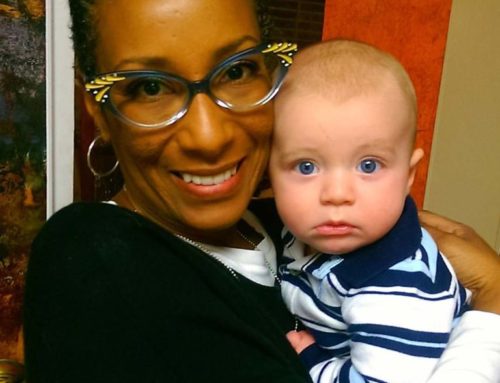The holidays are a time for family gatherings and all of the joys and tribulations that come with them. I am fortunate–I like my family, and our all-too-infrequent gatherings are often filled with stories and laughter. This Christmas was no different, and at one point the conversation turned to what an awful big brother I was as a teenager, and the torment I caused my younger brother and his friends. My family told my wife stories of my skills for bullying and belittling, laughing in a way that proves Mark Twain’s observation that humor is often tragedy plus time.
My wife, who is as innately kind-hearted as I am… well, … not, was aghast.
“I don’t like that person,” she said, and changed the subject.
I like to think I am not that person any longer, but it was also a reminder about how difficult change is. I have worked at being kinder for decades, but I am still amazed at how difficult it can be to overcome old patterns.
I am an Ennea-type Eight, and like many Eights my knee-jerk reaction (at least internally) is to immediately size up other people and identify their vulnerabilities and weak spots, and how I could take advantage of them should the need arise.
In the days before Christmas, I made the obligatory visits to the mall and supermarket, encountering crowds of people who were, like me, rushed, stressed, and distracted. I observed how my immediate response to most of the people I encountered (in this time of “good will toward men,” no less) was to mentally identify their stupidity, physical quirks, and general ridiculousness and feel the flash anger and hostility that accompany those thoughts.
It was a reminder that the child is always inside the man and the past is never really gone. The difference, fortunately, between me the middle-aged man and me the teenager is that I now see my thoughts and impulses arising more often, act upon them less frequently, and let them go more quickly. It’s a start, I guess.
When I coach clients who are also Eights, this topic invariably comes up. We Eights learn to cope with the world by establishing dominance over those around us. In order to do so, we often find some way to reduce the other–focusing on and amplifying their flaws and shortcomings.
This is exactly the a tactic that the military takes to prepare soldiers for war–dehumanizing the “enemy.” It is easier to kill a “Kraut,” “Dink,” or “Raghead” than it is a human being. Eights are often good generals but difficult people. They find it easy inspire fear or respect, but more-challenging to inspire love and loyalty.
The best leaders can do both, and Eights can begin their transformation into being the best of leaders by simply practicing kindness. They often resist this idea, equating “kindness” with “weakness.” They fear that they will lose the grip they have on their world if they become soft–that they will lose respect and the power that accompanies it if they start to dismantle the hard, protective shell they have spent their whole lives assembling.
Eights see their hardness as something to be proud of, and it does have some value. Eights are strong and can set their vulnerability aside to take on the difficult tasks that no one else wants to do or is capable of doing; they become protectors of the vulnerable and seekers of truth and justice. But such qualities often come with the unintended consequence of insensitivity and the failures of empathy that can lead to cruelties large and small.
The mistake that keeps Eights from growing is interpreting the unintended consequence as part of what makes them special.
To change, it helps for Eights to strip off their hard outer shell in a methodical way, and by doing so realize that it is not something they need most of the time. In fact, if they do need it in a difficult circumstance, they can put it back on quickly. The knight doesn’t wear his armor all the he takes it off after the battle and stores it away should he have to go to war again.
Eights can learn to develop basic kindness by adopting some specific ideas and practices:
- Realize that it is much more difficult to be kind than it is to be mean. I tell my Eight clients, “Anyone can be an a–hole; that is easy and it doesn’t impress me. I’ll be impressed when I see you doing something that is difficult–being kind to people you don’t have to be kind to.” (The ability to use such bluntness is one of the nice things about coaching Eights…)
- Say “I’m sorry.” Eights often view apologizing as a sign of weakness. In fact, the inability to admit we are wrong and apologize is a sign of weakness and stupidity. When you screw up, apologize, fix what you damaged, and try to do better next time.
- Practice mercy. Mercy is the decision to not punish those who deserve to be punished. Eights revel in justice and revenge. They often want to exact justice and deliver punishment, but the Eight needs to learn that there are times when practicing mercy and not punishing is a better long-term solution.
- Practice grace. Grace follows mercy. Mercy is not punishing those who deserve punishment; grace is giving a gift to someone who may not deserve it. If a subordinate misses a deadline or makes a mistake, it is merciful not to punish them and it is graceful to educate them on how to do things better in the future. Grace is deliberate or random acts of kindness–looking for ways to make the lives of other better when there is no obvious benefit to you.
- Cultivate magnanimity. “Magna” means “great” and magnanimity is the “loftiness of spirit enabling one to bear trouble calmly, to disdain meanness and pettiness, and to display a noble generosity” according to Merriam-Webster. It is the quality of the good king or queen who seeks the best interest of the kingdom rather than their own interests. It is the quality of one who realizes the way to true greatness is to resist those cruelties large and small that reduce us in our attempts to reduce others. It is marked by rising above rather than sinking below.
Each of these is easier said than done, and Eights (and those who have to live with them) have to remember that they will fail in their efforts frequently. Habits are difficult to break; deeply embedded habits at the core of our ego identification even more so. But this is the the only path out and up for the Eight. It is how they can go from thinking they are powerful to actually being powerful in a way that matters. When they fail they can exercise that strength that Eights are so identified with and endure the vulnerability involved with acknowledging their shortcomings and taking the uncomfortable steps trying again… and again and again.
As for me, I hope that should I encounter you at the mall next Christmas-time (or somewhere else along the way) I will be more inclined to automatically think kindly toward you than to think unkindly, and I’ll ask your patience if I fall short. In the immortal words of Samuel L. Jackson’s Jules Winfield, “I’m trying, Ringo; I’m trying real hard…”
(The January 2019 issue of Lion’s Roar magazine is devoted to the practice of kindness, and I highly recommend it to anyone interested in cultivating this quality–whether you are an Eight or not.)






